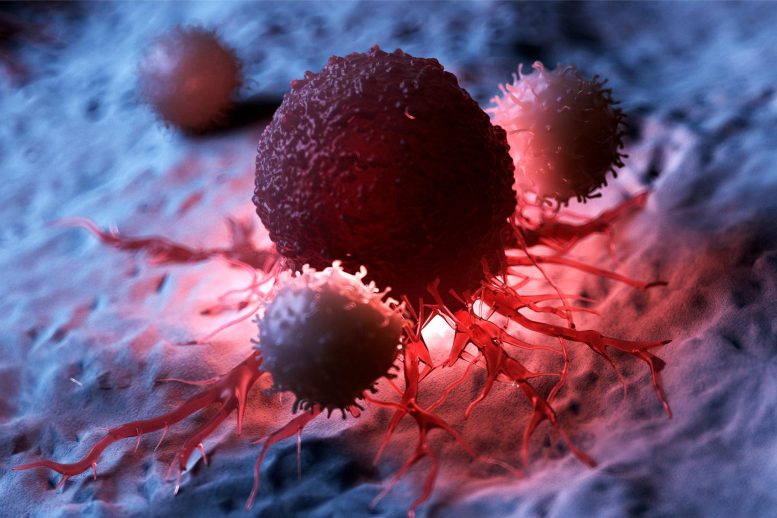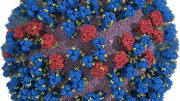
Scientists discovered that blocking the molecule Netrin-1 reduces the process contributing to cancer metastasis and resistance to therapy. Early trials in humans show promise, and further research will explore the treatment’s broader applicability and effect on survival rates.
Metastatic spread and chemotherapy resistance are primary reasons for treatment failure and death in cancer patients. The process of epithelial-mesenchymal transition (EMT) enables cancer cells to detach from their neighboring cells and acquire invasive properties. This transition plays a key role in metastatic development and the emergence of resistance to cancer therapies. To date, there is no therapy targeting EMT in cancer.
Breakthrough Research on EMT
In a study published in prestigious journal Nature, researchers led by Pr Cédric Blanpain – WEL Research Institute investigator, director of the Stem Cells and Cancer Laboratory, Faculty of Medicine and professor at the Free University of Brussels showed that Netrin- 1, a molecule expressed by tumor cells in different types of cancers, stimulates the Epithelial-Mesenchymal transition (EMT) in tumor cells and a drug targeting Netrin-1 blocks EMT in cancer.
Justine Lengrand, Ievgenia Pastushenko, Sebastiaan Vanuytven, and her colleagues found that cancer cells presenting EMT express high levels of Netrin-1 and its receptor UNC5B. Researchers have shown that increasing Netrin-1 promotes EMT while targeting Netrin-1 decreases EMT.
Collaboration for a Potential Therapeutic Solution
In collaboration with NETRIS Pharma which has developed a therapeutic antibody specifically blocking the interaction between Netrin-1 and its receptor UNC5B, the ULB researchers have shown that the administration of the therapeutic antibody leads to a reduction in tumor formation but also blocks EMT in these tumors, which reduces their ability to give rise to metastases and sensitizes the tumor cells to chemotherapy. “We are extremely happy and excited to have identified the first drug that can target EMT in vivo and therefore reduce the formation of metastases and resistance to chemotherapy,” explains Justine Lengrand, the first author of the study.
After having demonstrated the effectiveness of the anti-Netrin 1 antibody in preventing EMT in animal models, the ULB researchers then collaborated with researchers from the University of Lyon and Nétris Pharma to study the effect of this drug on EMT in patients with endometrial cancers.
Clinical Trials and Future Prospects
The researchers and clinicians administered the anti-Netrin antibody to patients in clinical trials in France. These studies showed that the administration of the therapeutic antibody was well tolerated and showed no toxicity. More importantly, they showed on biopsies from the tumors taken before and after administration of the drug, that this therapy decreased EMT in patients with endometrial cancers.
“This is a major world premiere, we have discovered a new drug that can reduce EMT, decrease metastasis, and stimulate the response to chemotherapy in preclinical models. In a second study, the researchers and clinicians provided the proof of principle for the medical application of our fundamental discovery and showed that the administration of the anti-Netrin-1 antibody inhibits EMT in cancer patients. We have now to assess whether the administration of the anti-Netrin-1 antibody and the reduction of the EMT will provide to the cancer patients a better clinical response to chemotherapy and immunotherapy,” comments Professor Cédric Blanpain, the leader of this project.
The Belgo-French collaboration identifies novel innovative therapeutic combinations to sensitize tumors to chemotherapy and prevent tumor progression, the development of metastases, and resistance to anti-cancer therapy. “In the long term, it will be necessary to determine the effectiveness of this new therapy on the survival of patients with endometrial cancers and assess the efficacy of this new drug combination for the treatment of other types of cancers presenting EMT such as lung or breast cancers” comments Professor Cédric Blanpain, the last author of the study.
Reference: “Netrin-1 blockade inhibits tumour growth and EMT features in endometrial cancer” by Philippe A. Cassier, Raul Navaridas, Melanie Bellina, Nicolas Rama, Benjamin Ducarouge, Hector Hernandez-Vargas, Jean-Pierre Delord, Justine Lengrand, Andrea Paradisi, Laurent Fattet, Gwenaële Garin, Hanane Gheit, Cecile Dalban, Ievgenia Pastushenko, David Neves, Remy Jelin, Nicolas Gadot, Nicolas Braissand, Sophie Léon, Cyril Degletagne, Xavier Matias-Guiu, Mojgan Devouassoux-Shisheboran, Eliane Mery-Lamarche, Justine Allard, Egor Zindy, Christine Decaestecker, Isabelle Salmon, David Perol, Xavi Dolcet, Isabelle Ray-Coquard, Cédric Blanpain, Agnès Bernet and Patrick Mehlen, 2 August 2023, Nature.
DOI: 10.1038/s41586-023-06367-z
This work was made possible thanks to the support of the FNRS, TELEVIE, WEL Research Institute, the Fondation Contre le Cancer, the ULB Foundation, the foundation Julie et Francoise Drion, the Fond Erasme, the FNRS/FWO EOS and the European Research Council (ERC).









When can we expect EMT blocking agents to be available for human trials/public pharmaceutical?
They’re already in trials. These things never move fast enough tho.